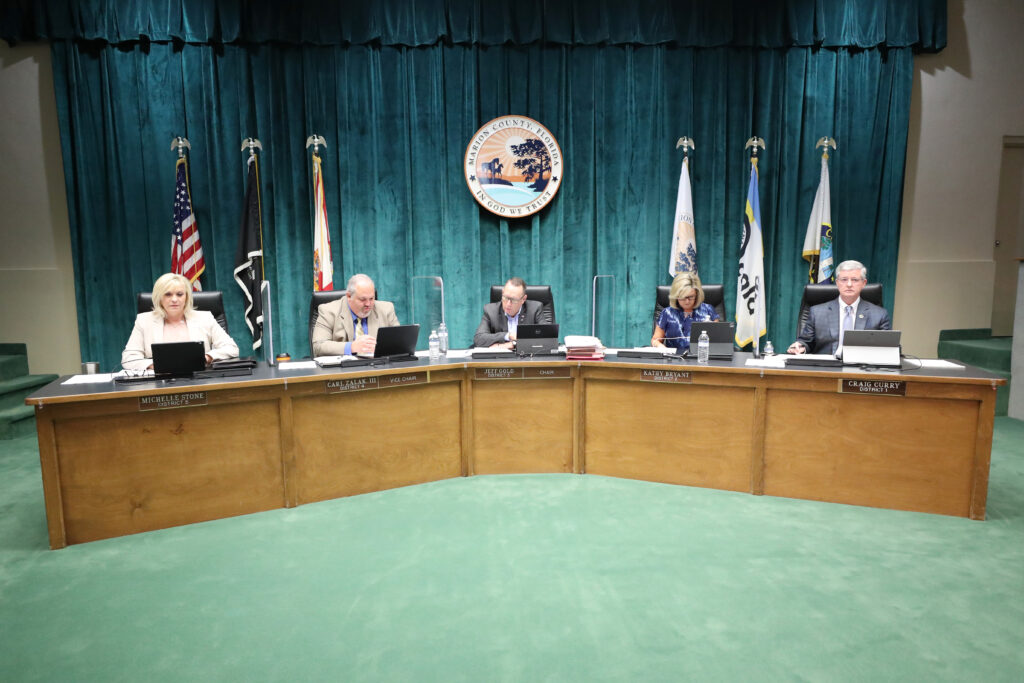County rule could limit public access

The Marion County Commission is shown during meeting in Ocala, Fla. on Tuesday, March 16, 2021. [Bruce Ackerman/Ocala Gazette] 2021.
The protocols, in part, restrict approaching commissioners at meetings
Marion County issued a directive that appeared to restrict public access to county leaders and meetings on Tuesday.
While the protocols were targeted toward the media, there is no distinction between members of the media and the public.
In its directive, issued by the county public relations department, all media will need to coordinate with Marion County Public Relations prior to attendance of or coverage of any meetings; all media will check in at the front desk of the administration building, and a representative of public relations will escort media members to their desired location; and no interviews of county commissioners or staff will be allowed prior to or following any meetings without prior coordination with Marion County public relations.
“Some of these restrictions are laughably unconstitutional and could not conceivably be enforced. For instance, the requirement that members of the media must ‘coordinate’ before being allowed to cover a meeting could not possibly be enforced. If a member of the media shows up at a meeting that the public is, by law, entitled to attend, then the member of the media has the First Amendment right to gather and share information without any need for ‘permission’ from a media relations officer,” said Frank LoMonte, director of The Brechner Center for Freedom of Information at the University of Florida.
In follow-up emails with Kelli Hart, the county’s director of public relations, the county backed off the requirement for coordination prior to public meetings but stood by having only media members and not other members of the public accompanied during open meetings.
“There cannot be any differential restrictions on the movements of members of the media as compared with the movements of the general public. If members of the general public can enter the building and go about their business without an escort, then members of the media must be allowed to do so as well. A government agency cannot single out members of the media for differential mistreatment and impose infirmities that are not enforced on other visitors,” LoMonte said.
Hart also said no member of the public could interact with commissioners before or after the meetings without coordination with public relations.
“If the members of the county commission or their staff choose not to make themselves available to give interviews, they have every right to decline to do so, but that is their decision and not the decision of a public relations officer. A public relations officer has no supervisory authority over an elected official,” LoMonte said.
Commissioners Carl Zalak, Kathy Bryant and Craig Curry said they were not aware of the protocols when contacted on Wednesday. They all said they would find out more information about the protocols. Bryant said she was confident the protocols would be updated.
A request for comment from County Administrator Mounir Bouyounes was not returned by presstime.






